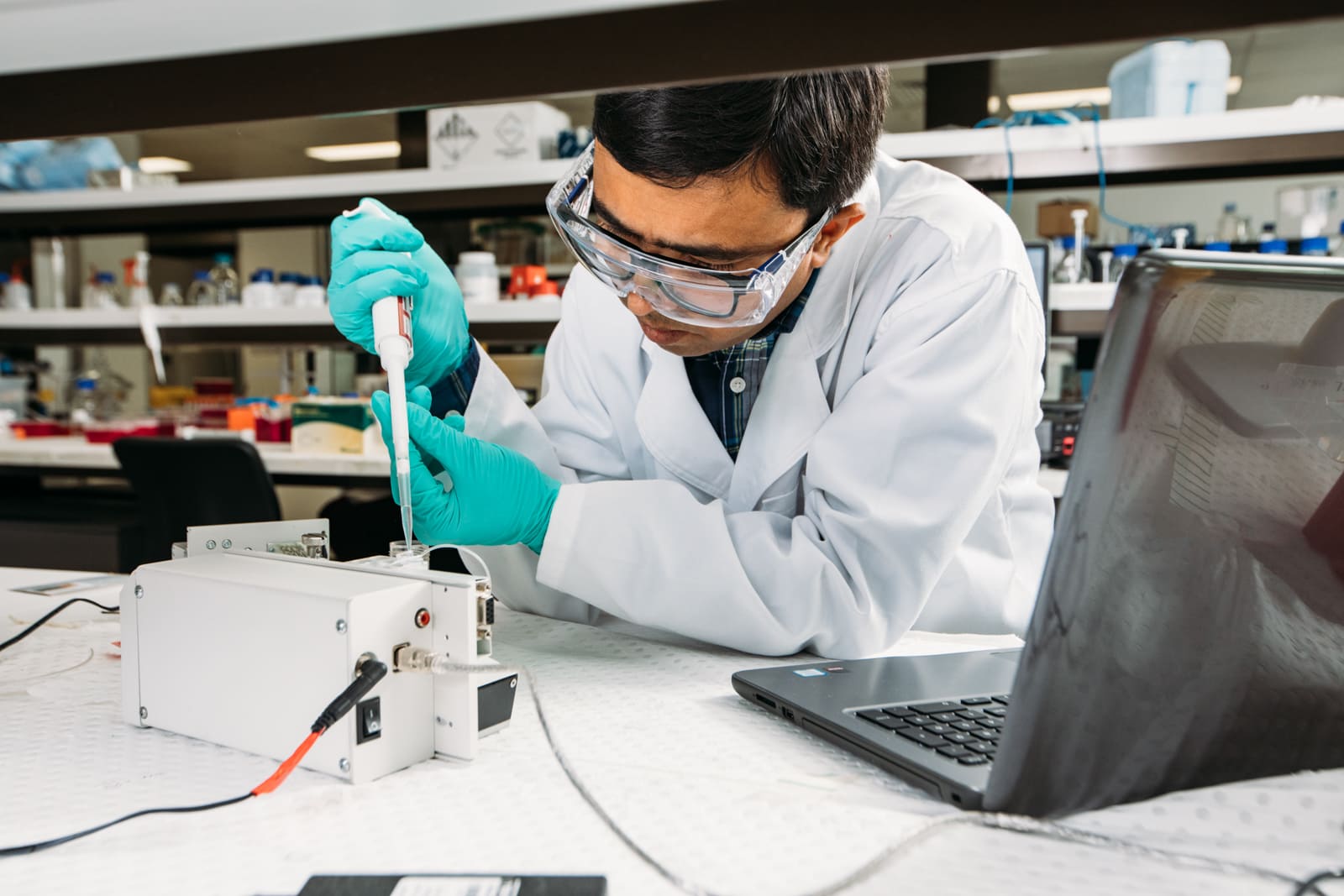
A Bangladeshi researcher along with others has recently developed an inexpensive device to detect cancer early through blood, urine, and saliva. Prototype of the device was made and an experiment was run over two thousand cancer suffering patients; the device has given much better results from the ongoing expensive tests, source said.
Senior Lecturer and Researcher Fellow of Griffith University of Australia Dr. Muhammad JA Shiddiky lead the eight-member team which started their research in 2012 and brought success in 2017.
Dr. Shiddiky completed his undergraduate and graduate from Shahjalal University of Science and Technology (SUST) in 1998 and 1999 respectively and PhD in 2007 from Pusan National University in South Korea and later joined Griffith University in 2015.
The other researchers from Griffith University are Professor Nam-Trung Nguyen and PhD students Sharda Yadab and Md Nazmul Islam. Members from Wollongong University in Australia are Professor Yusuke Yamauchi, Dr. Md Shahriar Hossain, Shunsuke Tanaka and Professor Gursel Alici. Mostafa Kamal Masud, who played a vital role in the research, is a PhD student at Wollongong University and also a research associate at Griffith University. Of them Sharda Yadab, Nazmul Islam, Shahriar Hossain and Mostafa Kamal Masud are Bangladeshi.
Source said a simple and inexpensive non-invasive sensing device is then used to provide a highly accurate result to patient in a short time for early diagnosis of cancer. The test uses a very tiny amount of clinical samples– typically five microliters– that change colour if the test is positive.
Talking with The Daily Observer on Saturday, Dr. Shiddiky said, “Several high expensive time consuming tests, which rely on sophisticated instrumentation and limiting their uses in developing countries such as Bangladesh, are being used now to detect cancer and so many patients succumb to cancer for delay detection.
“If we can detect cancer early, it leads to more effective and cheaper treatment, and the majority of cancers can be treated successfully if they are detected at their earliest stage and thus many can be rescued from their possible death,” he added.
Dr. Shiddiky said that they conducted an experiment over two thousand cancer suffering patients and the test has proved to be accurate in detecting concerning results.
Naked-eye observation can be used as first-pass screening test (yes/no answer) for the presence of a cancer biomarker without the need to send samples to the centralised laboratory, and once we get the positive result, we can further confirm and quantify the level of biomarkers present in the samples by portable UV-visible spectrophotometry or disposable screen printed electrode-based electrochemical readouts, he explained.
When asked he said, “It is difficult to fix the price of the device before making but it may not cross five dollars. It may come to market in next year. Some companies in Australia and Bangladesh have already expressed their willingness to buy our prototype to manufacture.” It is true that cancer can be detected now but inexpensive and early detection was our main goal and we are able to make such type of potable-device which may cost only 200 Taka in Bangladesh, he hoped.
Three journals– Nanoscale and Chemical Communications, Journals of the Royal Society and Chemistry and Analytical Chemistry, Journal of the American Chemical Society– have already published articles on different aspects of the work.


